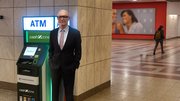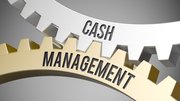Article
Surcharge regulation: People's choice
California is the latest state to thwart a legislative effort to ban ATM surcharges. But surcharge opponents there want to put it to a vote. by Ann All, editor
March 11, 2002
California's SB 270, a proposal by state Sen. Betty Karnette (D-Long Beach) that would have banned surcharges at all ATMs owned by financial institutions, was rejected 2-3 by the Finance, Investment and International Trade Committee earlier this month.
Noting that state Sen. Jim Costa (D-Fresno), a co-author of the bill, abstained from voting, Greg Wilhelm of the California Bankers Association concluded the bill "went down in flames." Costa had expressed concern that the bill could result in fewer ATMs in his district.
Yet the issue may not have burned out completely. Surcharge opponents, including labor unions and consumer groups, have expressed interest in putting the issue before California voters, who are notoriously receptive to ballot initiatives.
To Wilhelm, asking voters if they want to eliminate ATM surcharges would be akin to asking them if they want to stop paying taxes. "Nobody will put that on a ballot, but this is just as stupid," he said.
While Karnette was given permission to take a second vote at a later hearing, she said she hadn't decided whether to try again this year. "It's sad that a majority of the members of this committee don't understand that ATM surcharges are excessive and they gouge consumers. This committee didn't take this issue seriously."
Wilhelm fretted about the effort and expense that would be involved in convincing voters that surcharges are the "price of convenience," not a profit center for bankers. "You can squander an enormous amount of resources trying to fight every hill and valley on an issue like this," he said.
Numbers game
Karnette presented statistics from the California Public Interest Research Group, one of surcharging's most vocal opponents, in support of her bill. According to CPIRG, 99 percent of bank ATMs in the state impose the fees, compared to 45 percent in 1997. CPIRG contends that customers of community banks and credit unions will be forced to switch to larger banks in order to avoid surcharges.
The California Bankers Association countered with some figures from the Star System, the state's dominant EFT network. According to Star's annual consumer survey, 76 percent of transactions occur at a proprietary ATM. Of the 24 percent of surcharged transactions, slightly more than half are conducted by customers of the state's six largest banks.
"Even people with easy access to free machines all over the state are willing to pay a fee when it meets their convenience at the moment," Wilhelm said. "Not only are the consumers of California not being forced to become customers of the largest banks, the customers of big banks are using other people's machines. If they passed this bill, the community banks would have to provide free service to the customers of the major banks."
Who's the boss?
Then there's the issue of enforcement, raised in the ongoing Fleet Financial versus Connecticut battle. In that case, U.S. District Court Judge Janet Arterton recently ruled that the Office of the Comptroller of the Currency, not the state, was responsible for regulating federally-chartered banks.
At least one California politician, Michael Yaki, mentioned the OCC's involvement in Connecticut when a proposal similar to Karnette's was tabled by the San Francisco Board of Supervisors in February.
But Board President Tom Ammiano, who introduced the measure, vowed to push for a ballot initiative in November. In an American Banker article, Ammiano questioned why banks aren't subject to stricter regulation. "The banking community is not the Vatican."
Wilhelm thinks Ammiano's intent to put the issue before voters should strike fear into the hearts of all capitalists. "The precedent is not just for ATM fees," he said. "Every business in the state ought to be worried about local communities essentially setting up their own office of correct pricing. What's next -- gasoline prices and chili peppers at Safeway?"
Berkeley or bust
California's latest center for anti-surcharge activity is Berkeley, a city just across the Bay from San Francisco. In February, five members of Berkeley's nine-member City Council cast a vote supporting the idea in principle and asking for a city attorney's analysis.
According to the San Francisco Chronicle, the city would not actually enforce the measure. Rather, customers could file civil suits. The law would provide a minimum of $250 in actual damages and a maximum of $5,000 in punitive damages, plus attorney's fees as an incentive for lawyers to take on such cases.
Council member Kriss Worthington, a co-sponsor of the bill, called surcharging "extreme," and noted that "it's most extreme for middle-class people taking out small amounts of money, especially in the city of Berkeley, where banks have closed down some of their branches."
Berkeley's proposal was modeled on San Francisco's failed effort. But Berkeley Assistant City Attorney Zach Cowan rejected a comparison. "That kind of decision has very much to do with local politics that don't affect us here," he said. "Likewise, whatever we do here is based on our local politics. We're totally independent entities."
The bill won't be enacted unless Berkeley officials approve it a second time. Cowan said that although the bill doesn't appear to be in conflict with state or federal law, "we're continuing to research various issues raised by banks and savings and loans."
Wilhelm said the California Bankers Association sent the City Attorney a 23-page letter "outlining the federal constitutional and pre-emption issues we think are involved as well as our litigation options in federal court."
Noting Berkeley's well-known proclivity for "power to the people" political initiatives, Wilhelm said, "If (a surcharge ban) is going to happen anyplace, Berkeley is as good a place as any. Because, after all, who wants to copy Berkeley?"
But Cowan thinks the city could set a precedent if its council becomes the first local government body to successfully enact anti-surcharge legislation. "It's much easier for the bank industry to target 50 state legislatures than thousands or hundreds of thousands of cities and counties," he said.
What, no ISOs?
Berkeley's proposal, like those of state Sen. Karnette and San Francisco's Ammiano, would apply only to ATMs owned by financial institutions. This trend bothers Bob Arnould of the California Credit Union League, which represents about 600 credit unions. The league agreed to support Karnette's bill, but only if it was amended to include independent ATM owners.
"In California, independents are one of, if not the fastest-growing portion of the ATM business. Obviously an ATM surcharge ban that applied to only a portion of the market would not be equitable," Arnould said.
Arnould thinks it's possible that large banks could bypass a ban by spinning off a subsidiary to operate their ATMs. "It's too profitable a portion of the business for them not to consider corporate structural changes to avoid (a ban)."
If excluded from a ban, ISOs would get preferential treatment from retailers, Arnould added. "If a ban was not provided universally, a person renting a space could simply turn around and rent to an independent who could surcharge. You'd end up with all of the financial institutions priced out of key locations."
Arnould has heard the rumblings about putting an anti-surcharge proposal on the ballot. "It will certainly be interesting," he said. "You'll have high public support on one side and all of the financial resources lined up on the other."













